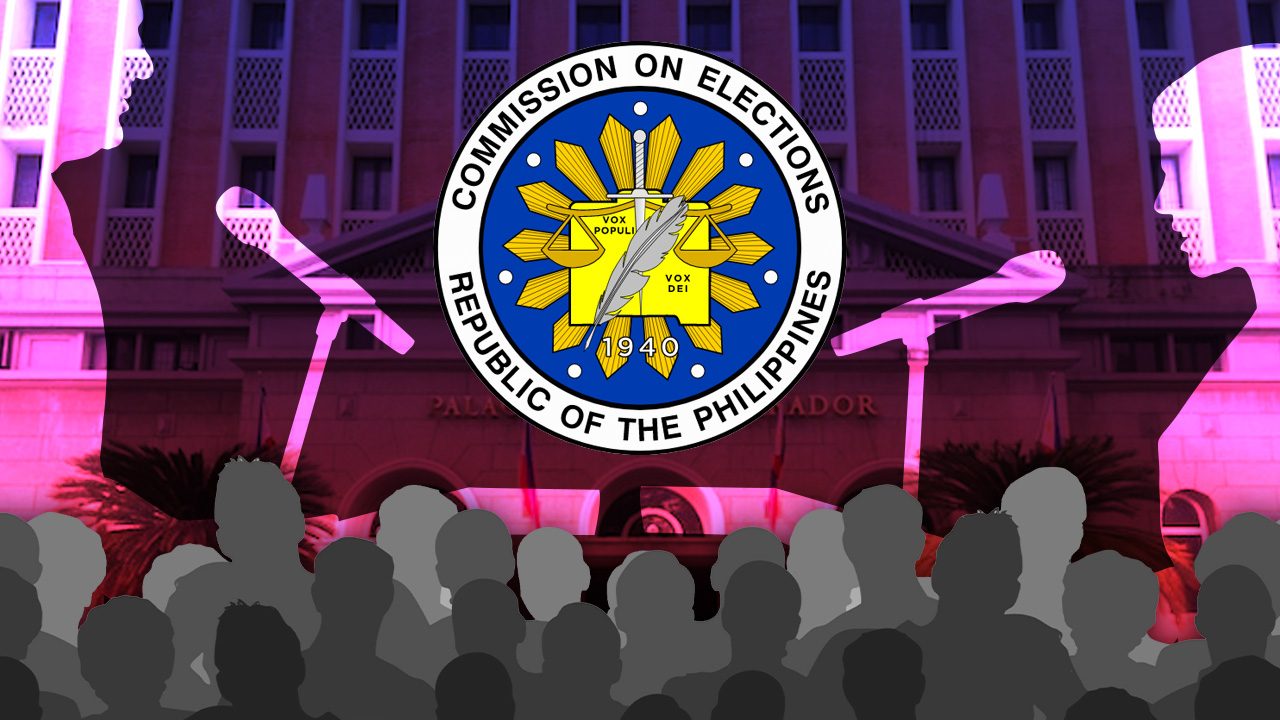SUMMARY
This is AI generated summarization, which may have errors. For context, always refer to the full article.

Election watchdogs agreed that candidates’ failure to attend the presidential and vice presidential debates for the 2022 polls would reflect poorly on them.
The Commission on Elections (Comelec) has no power under the Fair Election Act to compel candidates to attend the debates it organizes, leading netizens to speculate if some of the 2022 presidential and vice presidential aspirants would choose to skip the events.
Rappler sought the reactions of the Parish Pastoral Council for Responsible Voting (PPCRV), Legal Network for Truthful Elections (Lente), and Kontra Daya – groups which have constantly monitored elections in the Philippines – on the matter.
They all believe that snubbing the 2022 debates would not reflect well on the candidates.
“Their absence would continually be mentioned,” said Arwin Serrano, PPCRV’s director for voter education. “If there would be questions that were raised concerning them, they cannot answer and have the opportunity to respond.”
Kontra Daya convenor Danilo Arao said candidates who would exclude themselves from the debates are apparently wary of “making fools of themselves in front of the public.”
“They are unprepared to face public scrutiny which is inherent in public service. They should not be taken seriously therefore as their campaign promises remain empty rhetoric,” Arao told Rappler.
Lente executive director Ona Caritos said that the “less talk, less mistakes” strategy that is prevalent among candidates during the campaign season strips voters of their right to understand the platforms of election aspirants.
“If a candidate chooses not to attend in political debates, this will reflect their unwillingness to participate in subjecting themselves in critical discussions about their candidacy,” Caritos told Rappler.
“The refusal of the political candidates is a considered deprivation of the public from knowing the extent of their campaign since their candidacy will always be a matter of general public and national interest,” she added.

Participation in debates ‘important,’ ‘beneficial’
For PPCRV chief technology officer William Yu, the debates provide a venue for the public to see candidates, each equipped with their programs of action, on one stage.
“All candidates can make their platforms and thoughts known in an apples-to-apples basis,” Yu said. “The debate is a venue for legitimate information…live!”
Lente’s Caritos said digging deeper into the candidates’ platforms becomes more crucial in light of the COVID-19 pandemic.
“As the usual physical campaign activities would be strictly regulated, participation in these debates would ensure that the voting public would still have another platform for access to information about these candidates’ plans and programs,” she said.
Kontra Daya’s Arao also argued that the public should not expect any less from politicians seeking the country’s top posts.
“If students are required to defend their works in front of their classmates and teachers, candidates should be able to explain their promises to the electorate under intense scrutiny from the moderators and their opponents,” Arao said.
PPCRV’s Serrano also noted that candidates stand to benefit from the debates.
“This is free mileage for the candidates covered widely by media,” Serrano said. “Lots of voters depend on their performance in those debates [and how they answer] various topics that are close to their hearts and advocacies.”
Some analysts believe that the Comelec’s presidential debates in 2016 – the first since 1992 – were a game-changer, and in particular, gave a boost to the presidential campaign of then-Davao city mayor Rodrigo Duterte.
In one of the debates, he had promised to take a jet ski to the West Philippine Sea and plant a flag on one of the disputed islands, to address the maritime row between the Philippines and China.
It was a rhetoric that dominated news cycles, after the debate attracted large audiences, but it was also a campaign promise that remained unfulfilled to this day.
Debates start in February
Despite debate attendance being completely voluntary, the Comelec said candidates should not snub them.
“Presidential and vice presidential candidates should commit, to the public whose votes they seek, that they will participate in the #PiliPinasDebates2022,” Comelec spokesman James Jimenez said on Twitter on Saturday, January 22.
The “back-to-back” presidential and vice presidential debates will take place over a period of three months beginning February, Jimenez told CNN Philippines in a separate interview on Tuesday.
“We have to secure a memorandum of understanding with the candidates so they will agree to the rules of the debate,” he said.
The poll body said in the past that the debate setup will be “hybrid,” with candidates attending physically and the audience watching virtually. – Rappler.com

Add a comment
How does this make you feel?
![[Newsstand] The debates in 2016 were the game changer](https://www.rappler.com/tachyon/2021/10/TL-2016-debates-128-.jpg?fit=449%2C449)










There are no comments yet. Add your comment to start the conversation.